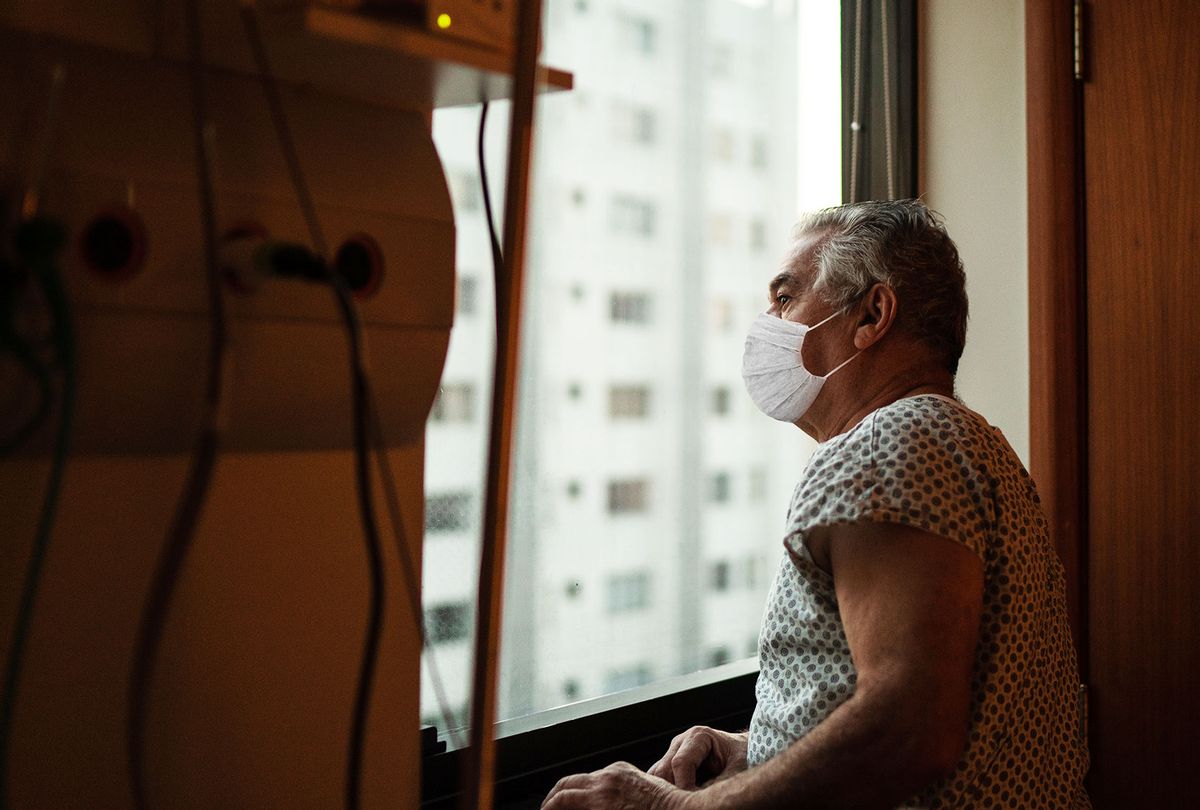Alicia Del Blanco — a 68-year-old retired French teacher from Madrid, Spain — had big plans. She was about to become a grandmother for the second time, was going to spend the summer in her house in Huelva, and join a daily therapy program specially designed for people with Alzheimer's. Like all of us, her plans upended with the pandemic.
On March 14th, 2020, Spain entered a nearly three-month lockdown where residents were not allowed to leave their houses unless for medical emergencies or getting groceries. Then came the closures of Del Blanco's favorite past times — theaters, restaurants, and musical venues — along with the restrictions on social gatherings and the discontinuation of her Alzheimer's therapy program. Del Blanco struggled to comprehend the reason behind all these changes. While she was able to maintain her daily walks around Madrid's largest park — El Retiro — after the lockdown ended, her accelerating cognitive decline became disturbingly noticeable to her husband, Armando Guerra.
"One day I asked [Del Blanco] to pour water in a glass," Guerra said, "and realized that she no longer understood what a glass meant unless I pointed at it." Her neurologist confirmed Guerra's observations. Del Blanco's cognitive decline in the last six months was equivalent to what was supposed to happen in two years. And hers was not the only case.
Researchers from Santa Maria University Hospital in Lleida, Spain, examined 40 patients with mild Alzheimer's five weeks after the lockdown and compared their evaluations to the ones they did a month before the pandemic. They found that — following the lockdown — the patients showed a worsening of neuropsychiatric symptoms, including increased agitation, apathy, and aberrant motor activity.
A study published in January from Columbia University showed similar effects on Parkinson's patients. To assess the impact of COVID-19 and social distancing, the researchers sent out a survey in May 2020 to the mailing lists of the Parkinson's Foundation and Columbia University Parkinson's Disease Center of Excellence asking the patients about their physical and social activities and their moods. Of the 1,342 responses they received, half of the patients reported a negative change in their symptoms, along with mood disturbances, such as deepened anxiety and depression.
According to Roy Alcalay — an associate professor of Neurology at Columbia University and the principal investigator of the study — these results were not surprising. "There's no question that the lack of activity, the lack of services, and the emotional stress of not seeing the family take a toll," he says, "and the toll for people with Parkinson's is the progression of the motor symptoms."
Alcalay plans on following up his study with a survey to be sent out to the same people a year after the pandemic to determine the long-term effects of COVID-19 on these patients. He also believes that more needs to be done to make sure that the patients are not permanently harmed any further.
The question for us doctors and policymakers is what can we do to ease the chronic effects of the pandemic for people with Parkinson's," Alcalay says. To him, the answer includes facilitating and improving telemedicine visits, promoting outdoor exercises, providing emotional and psychological assistance, and getting the patients vaccinated.
People with Alzheimer's and Parkinson's depend on daily socialization, therapy, and physical activity for their disease management. So, it is no surprise that increased stress, social isolation, and confinement during the pandemic would be especially destructive to them. A recent analysis done by researchers from Case Western Reserve University in Cleveland, Ohio, shows, however, that the disruption of daily routines is not the only reason why COVID-19 has been so detrimental to these patients.
The analysis — which studied the electronic health records of 61.9 million patients in the US — found that people with dementia are twice as likely to get COVID-19 compared to patients without dementia even after adjusting for demographics and COVID-19 risk factors. This could explain the 16% increase in Alzheimer's and dementia deaths observed in the U.S. alone since the beginning of the pandemic.
While the study does not say why these patients are more vulnerable, the researchers discuss two possible explanations. One is that — given the symptoms of the diseases, such as memory loss and motor impairment — the patients may not be able to comply with preventative behaviors for COVID-19, such as hand washing, wearing a mask, and social distancing. Another reason could be the patients' damaged blood-brain barrier, which allows certain bacteria and viruses to access the brain more easily and make patients more susceptible to bacterial, viral, and fungal infection.
According to Alcalay, despite all its negative impact, the pandemic had one surprising change for the better — the uptick of patients and clinicians using telemedicine — which he hopes to be permanent. While in-person visits are still necessary for certain physical examinations, Alcalay thinks that there are several advantages to telemedicine, such as in the cases when a patient is disabled and cannot leave their house, or if they live in a different city from the best available doctor. "I don't think [telemedicine] is gonna replace in-person care," says Alcalay, "but it's going to supplement it."
The pandemic had a silver lining for Guerra and his wife as well. "This year taught me to prioritize what is really important in my life," Guerra says. "Being with family and loved ones — no matter the circumstances — gives me the greatest joy."![]()


Shares